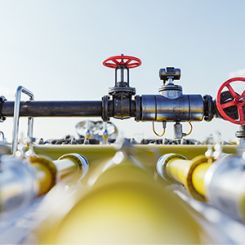
Over the last few decades, many industries have successfully used carbon graphite materials in applications ranging from space exploration to assisting in producing food here on earth. As awe-inspiring as space colonization is, this will not affect daily life for quite some time.
However, food production is as ubiquitous as breathing.
The Food and Drug Administration (FDA) has ruled impervious carbon graphite articles as Generally Recognized as Safe (GRAS) for use in food handling equipment. Some forms of carbon graphite have virtually no porosity in which bacteria can grow, enabling food and beverage producers to use carbon graphite materials to solve some of their most challenging design problems.
In addition to the GRAS rating, some carbon graphite grades have approvals for the following:
NSF-51/61–Standard which contains requirements for all types of materials used in the manufacture of commercial food equipment
Water Regulations Advisory Scheme (WRAS)–Regulations aimed at preventing contamination of public water supplies in the United Kingdom
Fruits & Juicers
Fruits, particularly citrus fruits like lemons, can be a challenge for manufacturers of industrial food processing equipment. Acidic liquids limit the materials acceptable for production, as these liquids can cause corrosion over time.
Carbon graphite is an inert material that can withstand continuous contact with some of the most caustic chemicals, like sulfuric acid. Citrus fruits pose no problem when in contact with carbon graphite for long periods. Carbon graphite bearings can be found in citrus fruit peelers, squeezers and juicers globally.
Baked Goods
Baked goods purchased from a local grocery store come from long conveyor ovens in massive quantities. These conveyors can be hundreds of feet long and contain rollers containing two bearings on each side. Sections of these systems go through the heating element and can reach temperatures of 350 F.
In these conditions, engineering plastics can fail, and conventional food-safe oil or grease lubricants will evaporate. Carbon graphite is a heat-resistant, self-lubricating option that is nearly maintenance-free and can drop in replacements for most bearing types.
Frozen Foods
Conveyor manufacturers often must concern themselves with the potential danger freezing conditions have on their equipment. Fruits, vegetables and meats undergo a flash-freezing process to preserve the quality and nutrients they offer. This allows food to stay as fresh as possible before reaching the consumer.
The grease and oil used in traditional bearings can become viscous, preventing conveyors from moving the food down the production. However, carbon does not need any lubrication. The material properties remain constant through a large temperature delta.
For this reason, carbon graphite is in turbopumps on rocket engines that go from ambient temperatures down to cryogenic conditions (as low as 400 F) in an instant.
Vegetable Blanchers
Blanching is scalding vegetables in boiling water or steam for a short time and immediately moving them through a
quick, thorough cooling in very cold or ice water. Blanching stops enzyme actions that would otherwise cause loss of flavor, color and texture.
When this process happens on a large scale, the vegetables are on conveyors moving into a boiling bath. Carbon graphite submerged in hot water improves the self-lubricating ability of carbon graphite.

